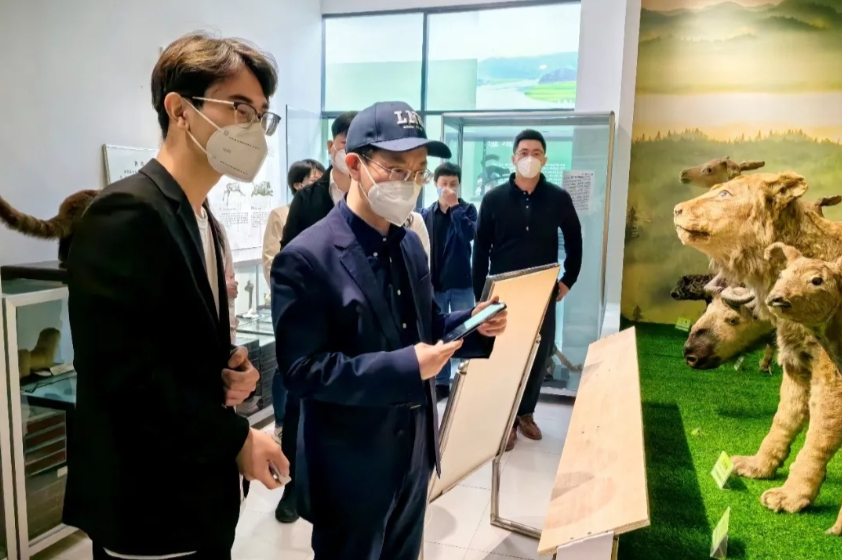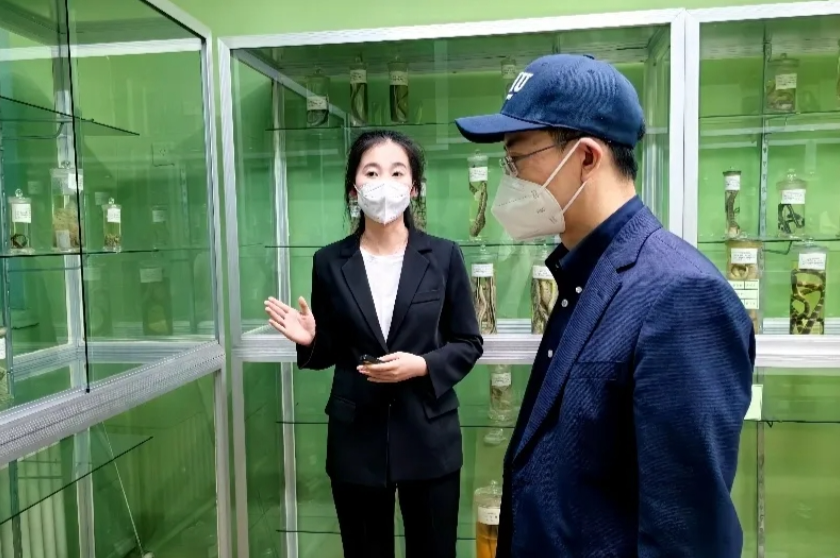On May 16, Yu Miaojie, Deputy Secretary of the CPC Committee and President of LNU, conducted research activities at the university’s Natural History Museum and listened to a report on the museum’s construction. Fu Qiang, Secretary of the Party Committee of School of Life Sciences, Hu Fengqing, Deputy Secretary of the Party Committee and Dean of School of Life Sciences and over 20 faculty members participated in the research.

During his research, Yu Miaojie visited various specimen exhibition halls of the museum, examined the museum’s cultural and creative products, and listened to a report on the historical evolution, construction progresses, and future development of the museum. A team composed of teachers and students from School of Life Sciences introduced exhibits represented by state-level endangered animal species, including Chinese alligator, cinereous vulture, golden eagle, and exhibits of specimens produced under the guidance of renowned entomologist Mr. Qin Yaoting.

Yu Miaojie fully affirmed the progresses and construction achievements of the Natural History Museum, and put forward specific requirements of the museum’s future development: Firstly, further promote upgrading and renovation for the aim of building a modern museum. Secondly, on the basis of comprehensive construction work, we should increase the opening frequency of the museum, give full play to the role of the museum in science education, scientific research, and talent cultivation, and highlight the museum’s social service functions, making it one of the top museums of higher education institutions nation wide. Thirdly, efforts should be made in cultural and creative product development, creating projects and products with unique characteristics of Liaoning University, and contributing to the high-quality development of Liaoning University.
The Natural History Museum of Liaoning University was established from the original Animal and Plant Specimen Center of School of Life Sciences during the university’s 50th anniversary of its establishment in 1998. The museum is entitled as national, provincial and municipal level science educational base with a collection over 20,000 specimens. It plays an important role on science education and scientific research. The museum was relocated in the second half of 2023.
